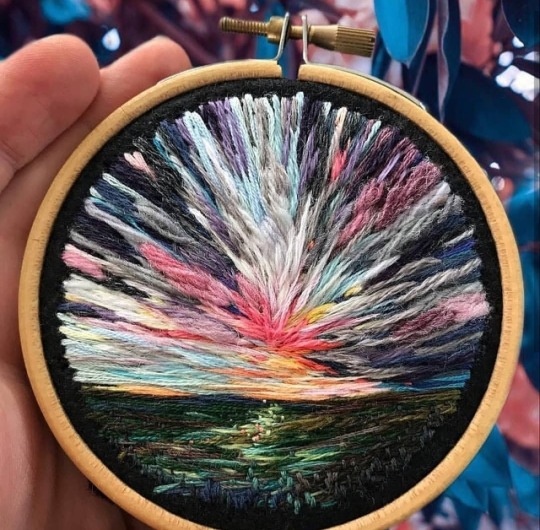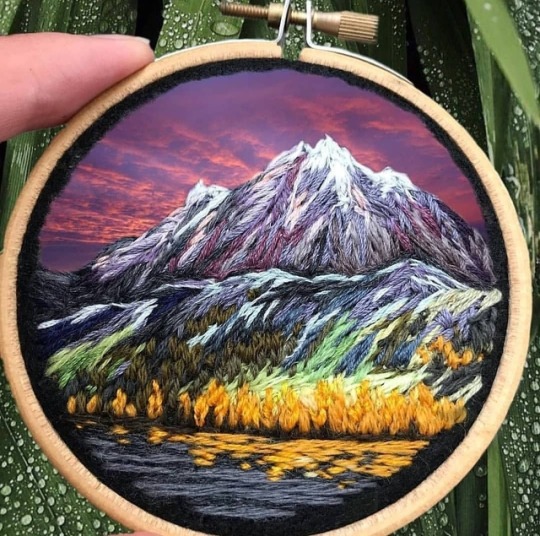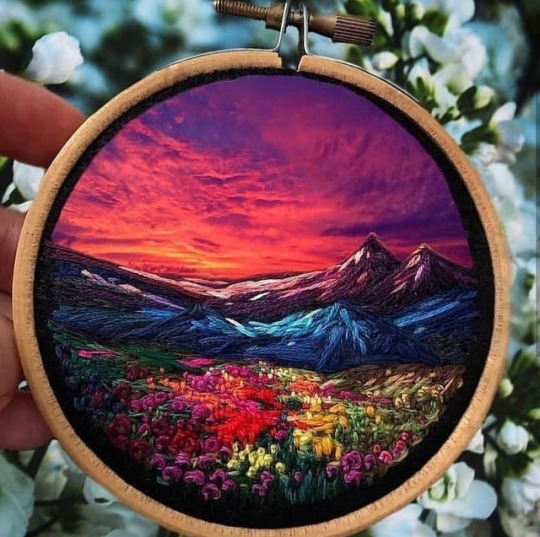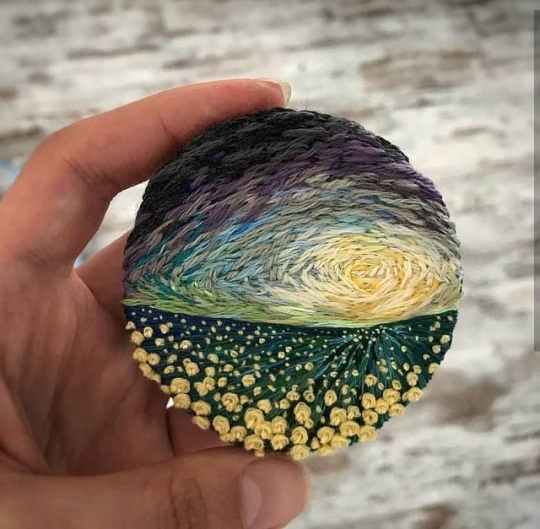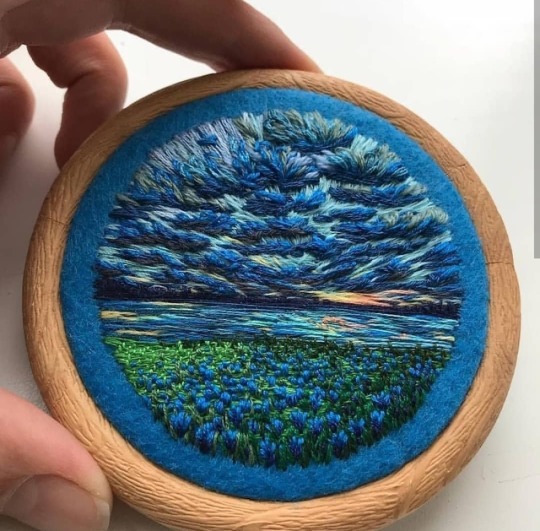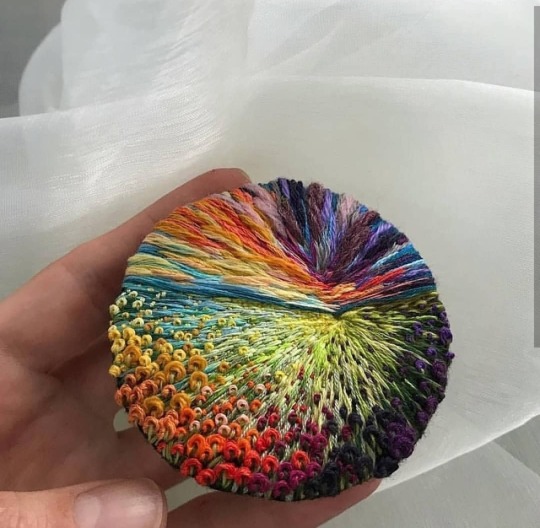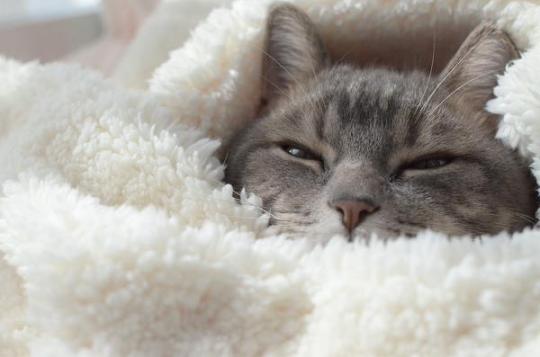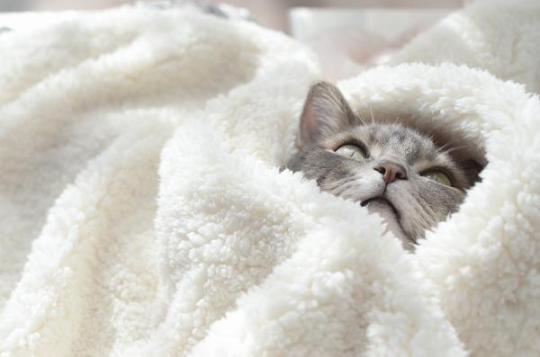Link
Se Qing and the Naked Truth
February 24th, 2017
Below the rooftop of a Beijing building that shudders against a glaucous sky of factory moans is an unextraordinary office building. In it, perhaps on the sixth floor, sits a man in a suit at a desk. The phone on his desk rings. He probably picks it up. Maybe he shifts his weight in his seat, undoing the buttons on his cuffs. Maybe he texts his wife, tells her not to wait up, a client needs this or that document tonight.
It’s 11 degrees Celsius, and a pair of broad-boned feet rest on the ledge of the rooftop above the office building. The owner of the feet crouches over them, back bent round as if in a snail shell. He looks down to the street below, speckled with pedestrians bundled in scarves and cars blaring their horns. He thinks about what kind of people might be in the office building.
Seven months prior, he’d written in a series of diaries published online:
我总是能听到开枪的声音,开始的时候我有点害怕,时间久了,也就习惯了,那声
音也像有人在用槌子往我脑袋里钉钉子,好像有一个建筑工地,有人要盖摩天大楼
,盖了这么多年也没盖好,好多无家可归的人在我的脑袋里面哭啊闹啊,我要被吵
死了,他们不让我睡觉,也不让我出门。不睡觉也好,不出门也好,反正每天出门
前,穿上精心挑选好的衣服,照着镜子怎么看都觉得像要去参加自己的葬礼
I am always hearing gunshots. In the beginning it scared me a little, but over time I’ve
grown used to it. Someone has taken up a hammer and is knocking nails into my head,
it’s a construction site where someone is erecting a monstrous skyscraper, they’ve been
building it for years and it still isn’t done yet. The many homeless people in my head are
crying and jibing, they won’t let me sleep, won’t let me out the door. Staying home and
awake suits me just fine, because every day before heading out, after putting on the
clothes I’ve selected so meticulously for myself, and looking into the mirror, it looks to
me as if I’ve dressed to attend my own funeral.
It had always felt this way. For much of his life, since his childhood in a suburb of Changchun, the capital of China’s northeastern province of Jilin, Ren Hang had felt as if he was stumbling through a shadowy psychosis, a jammed film reel in disparate shades of gray.
Still, through the fog of voices and visions clouding his consciousness, in Ren’s pulsing circuit board of veins, he has always felt a deep connection to his family, to his hometown, to China.
And this has never wavered, even as he moved what seemed continents away to study marketing at 17, to live in the 4-to-a-room cramped quarters of Beijing’s university housing, high from the ground, amidst the haze and cancers and pollution of a city of chaos.
–
Fragmented light splashes across the bare thighs and torso of a man whose face cannot be seen. Each hand holds a disco ball, whose mosaicked faces refract the flash’s exposure. Between the disco balls, an erect penis. In another photograph, from the last series Ren published, two nude men sit curled atop one other on the ledge of a building, pasted against a jumbled, silver skyline. Their eyes meet the camera’s gaze steadily.
As Ren crouches on the windowsill, many of these photos are already on exhibition at Foam Fotografiemuseum in Amsterdam. Museum curator Mirjam Kooiman says of the work, “It’s visual poetry. It’s without limits.”
Ren is not without limits.
The man in the office shuffles a stack of paper, maybe. He sighs when the phone rings again. Perhaps he stares at the minute hand on the wall clock.
Ren, some days, can’t tell wall clock from whiskey.
He rises slowly in the frame of the window. Stands, looks. Maybe he is naked, like so many of his subjects are. Maybe, as always, he’s meticulously selected what he believes to be the proper attire for the occasion. In one month he’ll be 30. He is always hearing gunshots.
He steps into the air.
–
January 15th, 2010
我只会注意那些病态,结巴,物质,2维思维,单亲家庭的男孩。有一种男孩是我
在涨潮几个小时之后会打电话给他,听到他的声音我知道虽然我还在水底,但是我
还没有溺亡。
I will only pay attention to those morbid, stuttering, material, two-dimensional- thinking
boys in single-parent families. There is a kind of boy who calls me after hours of high
tide. Hearing his voice, I know that although I am still underwater, I am still not dead.
Huang Jiaqi has the broad, hopeful eyes of youth and lips full as if they’d been stung by honeybees.
It’s been nearly a year since he ran away from home, leaving his university entrance examinations unfinished, his childhood tucked somewhere in diaries with thick-pulp pages, like those still made by tired men in the Qinling mountains.
At only 18, Jiaqi is slight of build, and can often afford nothing more to eat than a box of fried rice with a cucumber for five yuan. He devours the meal shoulder-to-shoulder with his lover, beneath the opaque and oppressive Beijing sky.
Jiaqi and Ren sleep in a house with five or six others who pad silently through the space like apparitions, also hungry.
Ren takes Jiaqi to rooftops. He snaps his shutter.
And with friends pitted naked against mosaicked Moroccan-style floors, between red curtains backlit by pale light, in reeds and bushes, amidst the haze of cigarettes in dingy apartments, Ren snaps his shutter. Boys and boys, girls and boys, girls and more girls mingle, mangled in limb and wire and branch.
Ren graduates from his compact analogue camera to a $29 Minolta X-700 film model. He is not interested in digital cameras. He says, “I like film. It’s exciting to wait.”
His work is featured in small group shows in Beijing, Shanghai, Hong Kong, and Nanjing.
Still, it seems no one in the art world knows Ren Hang’s name.
Jiaqi knows Ren Hang’s name, his mother’s name, the pock-marks of his left cheek, the sound of his heartbeat. In and out and in and out like the tide.
Jiaqi is Ren’s greatest muse, the reason for all things.
In eight years, an image of his face will splash the cover of an international art book published by Taschen and Ren Hang will be dead.
–
June 8th, 2008
写给周耀辉的信
每个人都是同性恋,每个人都是霸权者,每张脸都打上马赛克,每颗心都穿上防弹
衣。所有的亲吻都是一味毒药,所有的拥抱都是一个牢房。
Letter to Zhou Yaohui:
Everyone is homosexual. Everyone is a hegemonic person. Each face is marked with a
mosaic. Each heart is wearing a bulletproof vest. All the kisses are blind poisons, and all
the hugs are a jail cell.
Ren books his first solo show in 2010. It opens in July under the name “Eat Naked Lunch!” at Yuyintang, a cozy underground live house in Shanghai.
One photograph features a young woman lying on her back, her knees drawn against her bare chest. Between her legs sprouts a tangled bouquet of leaves and red wildflowers. No genitalia can be exposed in the photographs on display, though the work Ren produces is often explicit, featuring cigarettes with seething red heads protruding from vaginas and lilies with their stems tucked into anuses.
He begins to exhibit quietly in other galleries and live houses.
And gradually, like a moonflower unfurling, Ren Hang’s work begins to bloom in the art world. The influence of boundary-pushing erotic photographer Robert Mapplethorpe becomes increasingly apparent, yet curators and collectors insist they have never seen anything like it before.
They are eager to comment on its starkness, its unapologetic sensuality, its balance and color, and its function as a bold fuck you to the Chinese government.
–
In the spring of 2018, Chinese social media platform Weibo announces a three-month “cleanup” effort of its site, a censorship initiative launched on the heels of President Xi Jinping’s new cybersecurity jurisdiction. Weibo quietly begins removing all content related to homosexuality. In response, social media users storm the platform with the hashtag #Iamgaynotapervert.
Though homosexual sex was decriminalized in China in 1997, members of the LGBTQIA+ community continue to face prejudice and a dearth of political discourse about their rights. Today, gay marriage is still not legally recognized in a single continental Asian country.
The Dream of the Red Chamber, the Qing dynasty-era novel oft considered the peak of Chinese literature features a number of steamy same-sex relationships, and passages of dialogue brazen enough to make even the most indiscreet of patrons blush: “What’s it to you if we fuck asses! It’s not like we fucked your dad,” says one character. Hand scrolls of the same time period depict what appears to be recreational sex between male friends, one colorful panel portraying a man hiking up his robes, sitting upon another man’s lap while they enjoy a cup of tea.
So whence came the disdain for homosexuality in China? Anthropologists argue that the influence of Western socio-cultural norms and exposure to foreign media rendered the subject taboo, casting shame over same-same relationships as the perverted product of delinquency or mental disorders. Others assert that the filial values of traditional China that have dominated social life since the era of Confucius are to blame.
Ren says, “We hide the body in our culture,” because it is “a demoralization to show what they think should be private.” But instead of hiding, Ren rebels—worshipping both the sacred and the sacrilegious in the human form, twisting and contorting it into geometry and shadow.
Everything about Ren’s photography is charged with the electric current of sexuality. Much of it is homoerotic. Much of it is not. As one curator puts it, “There’s no hierarchy between the female and the male model in his work. It’s very telling about these tendencies of sexuality and queerness in Chinese society and how his generation is dealing with it.”
What does this one represent?, they ask. It must be a commentary on the political state of modern China, they whisper.
When asked whether his pictures are meant to inspire or incite a sexual liberation in China, Ren responds flatly, “A sexual liberation? No.” He says, “Nudes have always been around. We were born nude. So I don’t think there’s anything to revolutionize. I just photograph things in their more natural conditions.”
Ren Hang didn’t intend to become a photographer. He became one accidentally, toying with a compact camera in the ennui of his days at the Communication University of China, snapping photographs of his roommates here and there, often naked, scuttling to the showers from their room with four bunks like narrow coffins stacked atop one another.
Perhaps he didn’t intend to become a poet either, although after his death, Tim Crowley of the KWM Art Center in Beijing says, “He was, in a way, a poet who just happened to be a great photographer.”
At times, he writes:
"My cock"
When soft, it’s like a piece of meat
When hard, like a knife
I give you soft when you eat
Wait for you to eat hard
Use it to kill you
And, at other times:
"Real desperation"
I found
My breasts are bigger every day
My vagina is wider day-by-day
I can be ashamed
I can hold hundreds of rivers
My time is finally coming
But I also felt for the first time
What real despair is
I stand in the highest place
But I dare not take a look below
And as Ren Hang comes barreling into the world of contemporary Chinese art with images that incite gasps, fury, and arrests, he perplexes and enchants by straddling, unapologetically, the worlds of straightness and gayness, of kink and custom, of truth and deception, of masochism and tantrism, of woman and man.
–
May 9th, 2013
还有一次连续几天晚上我都觉得我的隔壁睡了两匹马,我能听到他们的喘息,还有
那种马的“突突”的鼻音,我每天回到家都小心翼翼地怕吵醒了他们,有一天我的朋
友来家里住,我跟他说,我的邻居是两匹马,他们一直在睡觉,你今晚还是不要洗
澡了,洗澡的声音太大了,我们说话走路也小声一点,不然会吵醒他们的,我已经
三天没洗澡了。我朋友说我疯了。我说,他们不是一般的马,他们会说人话,会躺
着睡觉。开始他以为我在开玩笑,但是我的表情越来越严肃,他说你真是疯了。后
来我也不知道该怎么跟他解释,他再也没有住过我家。
For a few days in a row, I felt like there were two horses sleeping next to each other. I
was very careful not to wake them. One day, my friend came to stay at my place. I told
him that my neighbors are two horses. They have been sleeping. You shouldn't take a
shower tonight. The bathing sound is too loud. We can only speak quietly. Or I will wake
them up. I haven't bathed for three days. My friend said I was crazy. I said that they are
not ordinary horses. They speak ‘people’ and lie down to sleep. At first he thought I was
joking, but my expression became more and more serious. He said that I was crazy.
Later, I didn't know how to explain to him. He never stayed at my house again.
In China, mental illness is like homosexuality. It exists. We don’t talk about it.
–
April 5th, 2016
我适应了逆来顺受,就像掷骰子,每次都掷到同一个点数,后来你发现,其实每一
个面的点数都是一样的。这个房间里我最熟悉的就是头顶的那块天花板,它就像我
的天空,白色的天空,没有任何阴晴变化的天空,我幻想过楼上的邻居就是住在天
上的神仙
I have adapted to obey just like a die that is rolled over and shows the same number every
time. In the end you realize that each side of the die is exactly the same. I am most
familiar with the ceiling from my room. It’s like my sky, a white sky. There is no
pleasant change in my sky. I imagine that my neighbor from upstairs is an angel living in
heaven with the gods.
“I love China, and I like shooting Chinese people,” Ren tells Vice Japan. “The more I’m limited by my country, the more I want my country to take me in and accept me for who I am and what I do.”
Ren is arrested a number of times—for shooting nude models in public places, where indecency is punishable by up to six months’ jail time, and, perhaps more scandalously, for self-publishing.
The Chinese government exercises nearly complete control over the press, and the country’s commitment to extensive media censorship is a well-documented phenomenon. Self-publishing, while technically legal, is a highly regulated procedure requiring an ISSN number and authors’ compliance with mandatory censorship policies.
Ren begins publishing his work underground in 2011 with the help of a friend who works in printing, knowing that he will never be able to publish his work otherwise, as the distribution of explicit photo or video content in China is illegal. The Communist Party once dubbed pornography “spiritual pollution.”
In 2015, in the vindictive heat of a Beijing summer, when asked about if he considers his pictures erotica, Ren tells a magazine intern, “I don’t like the word ‘erotica’ (in Chinese, qing se). I prefer ‘pornographic’ (se qing). I think it’s more direct.”
In China, a lifetime behind bars may await anyone who produces, disseminates, or sells “obscene materials.”
Naturally, Ren sets out to do all three.
Within five years, he produces 16 of his own zines and monographs, filled with glossy pages of penises urinating into corded telephone receivers, bodies twisted into fantastical shapes, vaginas splayed open like raw wounds. Many of the earliest of these books were sold underground in small shops whose owners knew his work.
A posterboy millennial, Ren has generated cult followings on his Weibo, Tumblr, and Instagram profiles. He publishes his photography freely on his website, alongside collections of poetry and an unassuming tab on the sidebar menu bar labelled “My Depression.”
His website is shut down unexpectedly. Once. Twice. Again. Law enforcement officers swarm Beijing galleries in wailing Volkswagen Passats, calling for the stop to his exhibitions. A man attends an exhibition and spits on one of the photographs.
He is arrested, but never imprisoned. While Ren operates as an anomaly, a dark creature inhabiting the fringes of Chinese society, authorities seem ambiguous about his status as a criminal. Is he a political rebel? Is he subverting the zhengfu?
They hesitate further because the mind of China is evolving. The economy, taking new shapes.
Chinese citizens born in the 1980s were taught that the country’s “pillar industries” included the automotive, construction, mechanical, electrical, and petrochemical sectors. But these categories are not static. In recent years, biotechnology, advanced energy, and IT have made their way to the forefront of the economy. These new pillars are China’s loyal heed to the call of science. Yet—more than anything—they’ve become the cherubim upholding the god that is capitalism to this country of atheists.
What is largely unexpected is the State Council’s 2009 announcement to make “culture” one of its pillar industries by 2020. In 2016, the Ministry of Finance earmarks nearly four and a half billion yuan in funding for cultural development initiatives. Beijing, Shanghai, and Shenzhen are booming. The art world, rising.
“The market in China has greatly matured, and this has enabled us to present exciting, emerging artists from China and across the Asia-Pacific region,” says Alexander Montague-Sparey, the Artistic Director of Photofairs Shanghai.
It’s no wonder that authorities cannot put their thumb on Ren Hang with enough accuracy to stamp him out like a cigarette butt. Instead, they fumble with his burning edges.
–
May 19th, 2011
这几年你一直在寻找一张失踪的桌子,生活在一只倾塌的杯子里,逐步进化成愤怒
的杯底。这世界就是离你这么近,却摸不着,又看不清楚。就像一束光要和影子做
爱,那么难,我活得像一个影子。却只能再黑夜里出没。
In the past few years you have been looking for a missing table, living in a falling cup,
and gradually evolving into an angry cup. This world is so close to you, but it can't be
touched. Just like a beam of light to make love with a shadow, so difficult, I live like a
shadow. Only to haunt the night.
Ai WeiWei is China’s most beloved and most despised political dissident. The irreverent artist is known for designing the Beijing National Stadium for the 2008 Olympics and for his controversial visual arts challenging the institutions of modern Chinese society. In 2014, he exhibits an entire collection featuring only photographs of his left hand pitted against the background of famous global monuments and religious buildings, his middle finger raised in bullish protest.
The state media deem him a “deviant and a plagiarist.” He’s arrested in April of 2011 and held for 81 days by authorities. Officials allude vaguely to his “economic crimes” without filing specific charges. His assistant, Wen Tao, mysteriously disappears and is never seen again.
In the consistent spirit of controversy, he champions the work of underground photographer Ren Hang.
In 2013, he curates an exhibition called “FUCK OFF II” at the Groninger Museum in the Netherlands, featuring the works of Ren and 36 other contemporary Chinese artists, many of whom are pioneering a neo-avant-garde driven by a need to challenge the sociological, environmental, and political climates of modern China. It contributes to a burgeoning, global Ren Hang following.
Ren always maintains that he is simply making pictures the way he wants to make them.
“Politics is interested in me,” he tells the press at the OstLicht Austrian photography gallery in 2015, “but I am not interested in politics.”
–
March 23rd, 2015
我昨天在超市
偷了一管牙膏
前天把邻居的锁孔
用口香糖堵住
上周把小区门口的
一排垃圾桶
全都踢翻
每次我做了坏事
都觉得生活好像
又变得美好了一些
I was in the supermarket yesterday,
I stole some toothpaste
The day before yesterday,
I blocked the neighbor’s keyhole with chewing gum
Last week, at the neighborhood entrance,
I kicked over
A row of trash cans
Every time I do bad things
I feel like life
Is getting better again
Ren hasn’t spoken much to his family since he left Changchun at the age of 17.
He calls his mother. He paces the length of his apartment slowly, watching one foot move in front of the other, the pattern in the floor’s wood grain rendered into clusters of tiny faces.
“I’m wondering if you’d like to model for me in a photo shoot.”
His voice hangs in the air like a bird riding a current of wind.
“Do you want me to take off all my clothes?” she finally laughs.
He is jarred by the realization that his parents must know everything. Here, all along, he believed they couldn’t have suspected a thing.
Of course he doesn’t want her to take off her clothes—she’s his mother, for goodness sake.
She doesn’t mind.
He insists that a bra and underwear will do just fine.
“Okay.”
“Okay.”
She smokes a cigarette. Ren snaps his shutter.
Expressionless, she holds a pig’s severed head. Ren snaps his shutter.
–
February 2nd, 2010
《我爱你》
想在你身后,
看你走路的姿势,
盯着你并不丰满的屁股看。
想去你家。
想跟你睡一张拥挤的铁床,
在半夜突然醒来,
舔你的眼睫毛,
摸你冻裂的嘴唇。
想在早上抢着穿你的内裤,
让你穿我的,
看你站着小便,
拍下你用过没冲的厕所。
"I Love You"
Want to be behind you,
Look at your walking posture,
Stare at your not-so-plump butt.
Want to go to your home.
Want to sleep with you on a crowded iron bed,
Wake up suddenly in the middle of the night
Lick your eyelashes,
Touch your cracked lips.
Rush to wear your underwear in the morning,
Let you wear mine,
Watch you standing, urinating,
Photograph the toilet you used without flushing.
Sometimes Ren darts into traffic, or lunges himself ahead of an encroaching bus, only to leap backward at the last moment. Sometimes he stands too close to the platform’s edge in Beijing’s swollen subway stations. When he swims in the chlorine-blue pools of hotels around the world—places where his work is championed, where he receives bottles of wine and dinners of black caviar and foie gras from museum directors—he keeps his eyes closed, lets his body sink to the bottom of the basin, listens to the muted sparkling of the water.
He feels most at peace when he is close to death.
“Since I was seventeen,” says Jiaqi, “the most important thing for me has never changed—to protect you and to protect our love.”
Jiaqi is well on his way to establishing himself as a leading fashion stylist, editor, and model. He makes his own pictures, too. In 2018, his photography glosses the cover of Tatler Hong Kong.
He snaps an iPhone photo of Ren. Beneath the glow of a red umbrella amidst geometries of sunlight, Ren stands in a blue Umbro soccer tank top. He looks into the distance blankly, his broad and elegant cheekbones lending to his perpetual appearance as gaunt, as exceedingly gentle, as older than he is. It seems so far removed from the world of art that they both have learned to inhabit in different ways.
–
January 10th, 2013
《最亮的光太快》
我从来不想变成最亮的光
���亮的光太快
比流星还快
我愿意变成黑夜
我愿意缓慢得就像静止
我愿意经常被你遗忘
偶尔被你仰望
即使在那仰望里
我只是一张背景
“The Brightest Light is Too Fast”
I never want to become the brightest light
The brightest light is too fast
Faster than meteors
I would like to turn into night
I am willing to be slow like static
I am willing to be forgotten by you often
Occasionally you look up
Even in that gaze,
I'm just a background
Ren Hang steps into the sky.
The gray of Beijing’s carbonate heavens flashes against fragment of glass, of skyscraper, of silver branch. Perhaps a bird darts past, cutting through the air careless—careless as one must be to have been given the great gift of flight without cognition of one’s privilege.
Perhaps before peace,
He sees his mother’s face. Her harsh mouth in a line, a stream of smoke curling around her.
Perhaps
He sees a boy with bee-stung lips.
The boy says: “I didn’t even know about this thing called depression the first time I saw you crying and telling me you wanted to set the flat on fire so we could die together.”
Maybe he hears the boy’s voice ringing in his ears, a kind of private, radiant sonar.
“You said you were my home, and I was yours.”
These words are true.
But these ideas are all simulation, are all romantic projection.
The BBC runs the headline: Ren Hang: Death of China’s Hotshot Erotic Photographer.
It is all romantic projection.
He is not an erotic photographer. He is, unapologetically, a se qing photographer, an artist of the bizarre and the beautiful, unmarried to any creed or movement, an artist brazenly throwing forth pictures of a violent peace, an artist, an artist, an artist. A mere observer of his world.
And he is, by no means, a hotshot. He is simply a student of the human condition—what his lover calls, “a kid who loves life, but lacks the skills to live it.” He is only human, diseased and obsessed, incurable and in love.
So more than likely,
When Ren Hang steps into the sky,
He does not take note of the clouds reflected in the windows of the office building tearing through space, or the dusky thrush floating above him. He does not see his mother’s stern face or hear the voice of Huang Jiaqi.
More than likely,
He thinks of nothing.
When Ren Hang steps into the sky,
He refuses to become the brightest light.
The brightest light is too fast.
Kendra Clark is a New York-based editorial content creator and part-time residential student in the creative writing master’s program at the University of Cambridge. Her poetry and nonfiction have appeared in or are forthcoming in Into the Void magazine, The Evansville Review, Emrys Journal, and more.
5 notes
·
View notes
Link
0 notes
Link
0 notes
Video
vimeo
When We Were Knights from GoPro (Best Friends, BASE Jumpers)
0 notes
Link
Here are twenty lessons from the twentieth century, adapted to the circumstances of today: 1. Do not obey in advance.
2. Defend an institution.
3. Recall professional ethics.
4. When listening to politicians, distinguish certain words.
5. Be calm when the unthinkable arrives.
6. Be kind to our language.
7. Stand out.
8. Believe in truth.
9. Investigate.
10. Practice corporeal politics.
11. Make eye contact and small talk.
12. Take responsibility for the face of the world.
13. Hinder the one-party state.
14. Give regularly to good causes, if you can.
15. Establish a private life.
16. Learn from others in other countries.
17. Watch out for the paramilitaries.
18. Be reflective if you must be armed.
19. Be as courageous as you can.
20. Be a patriot.
0 notes
Link
0 notes
Link
“if you get this [skiing outdoors] once then this is your drug, you know, you never stop, you know...But I love it, seeing friends of mine making naughty things, I love it, they are really naughty naughty boys, do the forbidden things...”
0 notes
Video
youtube
Headspace - 'Expectation' animation
This video explains how meditation works better and in shorter time than any I have seen thus far
0 notes
Link
Paul Kalanithi “Before I go”
“That message is simple: When you come to one of the many moments in life when you must give an account of yourself, provide a ledger of what you have been, and done, and meant to the world, do not, I pray, discount that you filled a dying man’s days with a sated joy, a joy unknown to me in all my prior years, a joy that does not hunger for more and more, but rests, satisfied. In this time, right now, that is an enormous thing.”
0 notes
Photo

The 92-year-old, petite, well-poised and proud lady, who is fully dressed each morning by eight o’clock, with her hair fashionably coifed and makeup perfectly applied, even though she is legally blind, moved to a nursing home today. Her husband of 70 years recently passed away, making the move necessary. After many hours of waiting patiently in the lobby of the nursing home, she smiled sweetly when told her room was ready. As she maneuvered her walker to the elevator, I provided a visual description of her tiny room, including the eyelet sheets that had been hung on her window. “I love it,” she stated with the enthusiasm of an eight-year-old having just been presented with a new puppy. “Mrs. Jones, you haven’t seen the room …. just wait.” “That doesn’t have anything to do with it,” she replied. “Happiness is something you decide on ahead of time. Whether I like my room or not doesn’t depend on how the furniture is arranged, it’s how I arrange my mind. I already decided to love it. It’s a decision I make every morning when I wake up. I have a choice; I can spend the day in bed recounting the difficulty I have with the parts of my body that no longer work, or get out of bed and be thankful for the ones that do. Each day is a gift, and as long as my eyes open I’ll focus on the new day and all the happy memories I’ve stored away, just for this time in my life.” She went on to explain, “Old age is like a bank account, you withdraw from what you’ve put in. So, my advice to you would be to deposit a lot of happiness in the bank account of memories Thank you for your part in filling my Memory bank. I am still depositing.” And with a smile, she said: “Remember the five simple rules to be happy: 1. Free your heart from hatred. 2. Free your mind from worries. 3. Live simply. 4. Give more. 5. Expect less
2 notes
·
View notes

